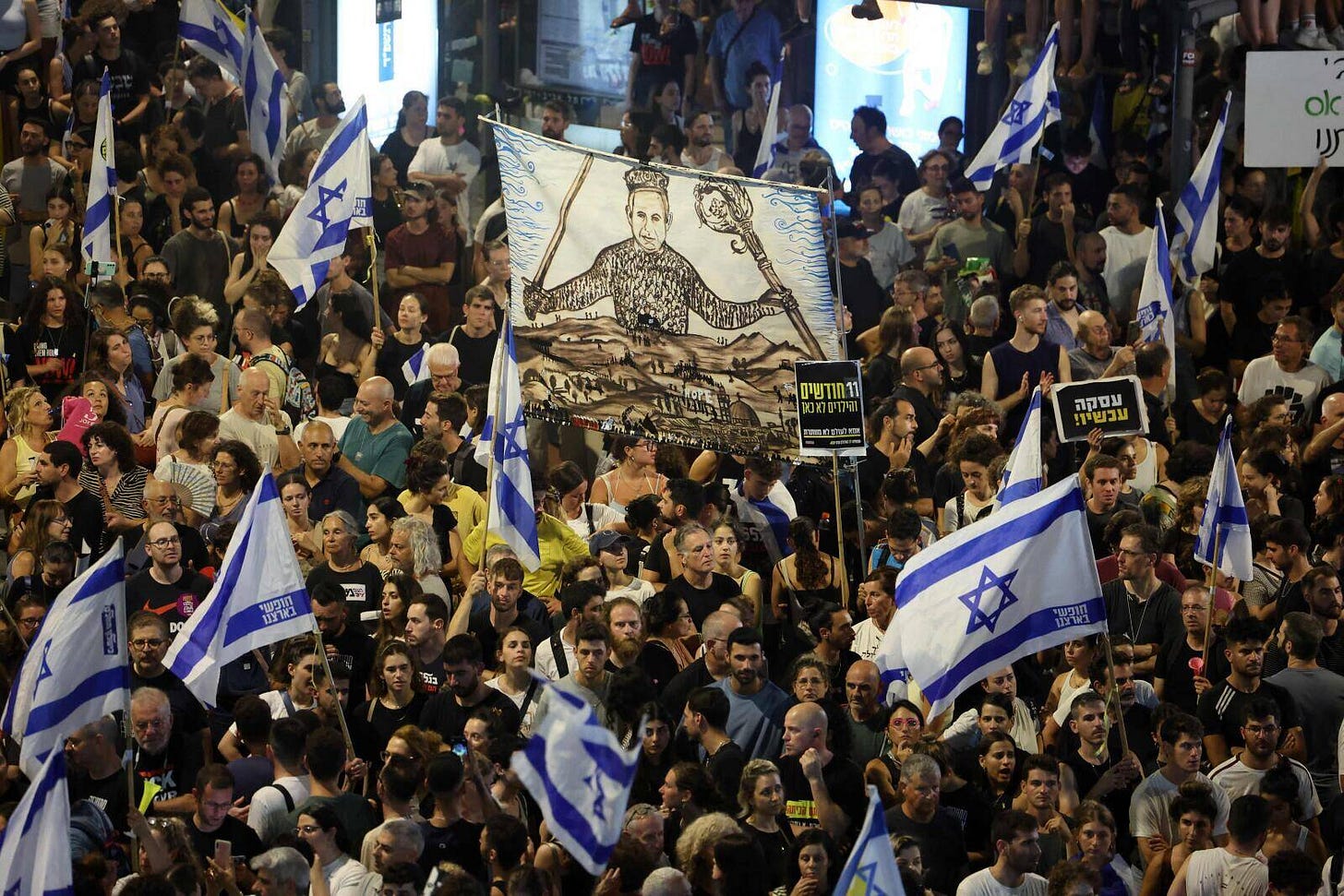Israel: Toward Eternal War?
OCTOBER 7TH, ONE YEAR LATER. As Israel enters open war with Hezbollah in Lebanon, tensions with Iran are at their peak. The consequences for Israeli society are already profound.

"This situation will affect us for the next twenty to thirty years." Yair Bar-Haim, the director of the National Center for Traumatic Stress and Resilience at Tel Aviv University and a specialist in post-traumatic stress disorder (PTSD), is unequivocal. "Today, there are already nearly 500,000 cases of PTSD in Israel, most of which remain untreated. With the events of October 7th, the ongoing war in Gaza, and the conflict with Hezbollah in Lebanon, we expect up to 60,000 additional cases." Bar-Haim himself had to hastily open his center in January, although it was initially scheduled for 2026. Since then, he has treated around 500 trauma survivors, nearly 80% of whom are either survivors or displaced individuals from the October 7th attacks, as well as reservists returning from Gaza. Yet, he warns that the Israeli healthcare system "won't be able to handle this influx of patients." Of the 8,000 therapists in the country, only about a hundred are trained to manage post-traumatic stress. The consequences, he predicts, will be devastating. "Waiting lists will grow, people won't receive care or will be inadequately treated. This will affect their families, their communities, and ultimately society as a whole, even the economy."
An economy in distress
It's a grim forecast when considering that Israel’s economy is already under significant strain. Over the past year, the conflict has cost the equivalent of 56 billion Swiss francs; Israel’s defense budget has been doubled. Foreign investment has dropped by 17%, and exports by 7%. Around 46,000 Israeli businesses have closed, and growth has fallen by 1%. Simultaneously, prices are rising, particularly for food. Israel is now experiencing stagflation — economic stagnation coupled with rising inflation.
But according to Israeli economist Jacques Bendelac, "The country is actually entering a recession, with growth shrinking." He expresses concern over the recent developments with Hezbollah in Lebanon and Iran. "The spiral we're entering could extend the war into 2025, further increasing its cost and worsening the recession." He also points out that U.S. credit rating agencies Moody's and Standard & Poor's have both downgraded Israel’s credit rating in recent days. "This reflects a shift in outlook from stable to negative. And Moody's even voiced what no one here wants to acknowledge: the forecast is bleak because there is no exit strategy for this conflict. The government is intent on prolonging the war as long as possible to survive."
An illusory radicalism
Shir Hever, an Israeli political economist, takes the analysis further by pointing out the paradox of the apparent stability of the Israeli currency, the shekel. "To prevent its collapse, the Israeli central bank is rapidly selling off its dollar reserves. But what happens when those reserves are depleted?" Hever draws a parallel between this short-term economic policy and Israel's military strategy. "These are radical actions, aimed at achieving dramatic short-term results. Just like assassinating Hezbollah leader Hassan Nasrallah or spending a billion dollars in a single night to intercept Iranian missiles. In the short term, these actions create the illusion that everything is under control. But there's no long-term plan, and that is clearly self-destructive," explains Hever, who is also the coordinator of the BDS campaign advocating for an international boycott of Israel.
According to him, several underlying trends indicate that even the Israeli population feels this growing instability. "For the past year, Israelis have been investing their own money outside the country, opening accounts abroad, or even leaving Israel," he says. Israel’s Central Bureau of Statistics has recorded 55,300 Israelis leaving the country in 2023, with another 40,000 departures in just the first half of 2024. Hever adds, "In the public debate in Israel, experts, including historians from across the political spectrum — both Zionists and anti-Zionists — are now asking a stark question: Is the state of Israel dying?"
A traumatized society
Uriel Abulof, a professor of political science at Tel Aviv University, is also questioning the future of the Jewish state, particularly in light of the deep divisions within Israeli society, which have been further exacerbated by the shock of October 7th. "Look at the nationalist messianic Jews. For them, October 7th was a divine signal to reclaim all the land — whether in Gaza, the West Bank, or even southern Lebanon today. They are calling for more violence, against Gaza, Lebanon, and even Iran. On the other hand, there are the liberals, who see October 7th and the aftermath as a complete disaster, and more so, a direct consequence of being abandoned by the government. They want a lasting political solution, they want peace," explains the professor.
But he notes a commonality between these opposing factions. "As a whole, we are a society traumatized by October 7th, but also by the war that has been waged for a year now in Gaza against Hamas, without a clear victory and without bringing back all the hostages alive." The professor interprets the open conflict with Hezbollah in Lebanon as "an attempt to overcome the trauma by securing a clearer victory." However, he warns that this is a mirage. "Netanyahu and his coalition are waging this war solely to stay in power. And their hold on power matters more to them than the lives of their own people. With this mindset, and the war now beginning in Lebanon, I fear we are heading toward a perpetual war.



